Cats are known for their quirky behavior, but one thing that may leave cat owners scratching their heads is why their feline friends watch each other use the litter box.
While it may seem like a strange habit, cats do this for a few reasons.
Firstly, cats are naturally curious creatures. They like to observe their surroundings and investigate anything that piques their interest.
Watching another cat use the litter box may be a way for them to satisfy their curiosity and learn more about their fellow feline.
Another reason why cats may watch each other use the litter box is for social reasons.
Cats are social animals and have a complex hierarchy within their group.
By watching another cat use the litter box, they may assert their dominance or show submission to a higher-ranking cat.
It may also be a way for cats to bond with each other and strengthen their social bonds.
The Feline Fascination: Why Cats Watch
Cats are naturally curious animals and often display this curiosity unexpectedly, such as watching other cats use the litter box.
This behavior is perfectly normal and can serve several purposes, including social bonding, satisfying their curiosity, and triggering their hunting instincts.
So, why do cats watch other cats use the litter box? There are several reasons for this behavior, including:
Curiosity: A Natural Trait Of Cats
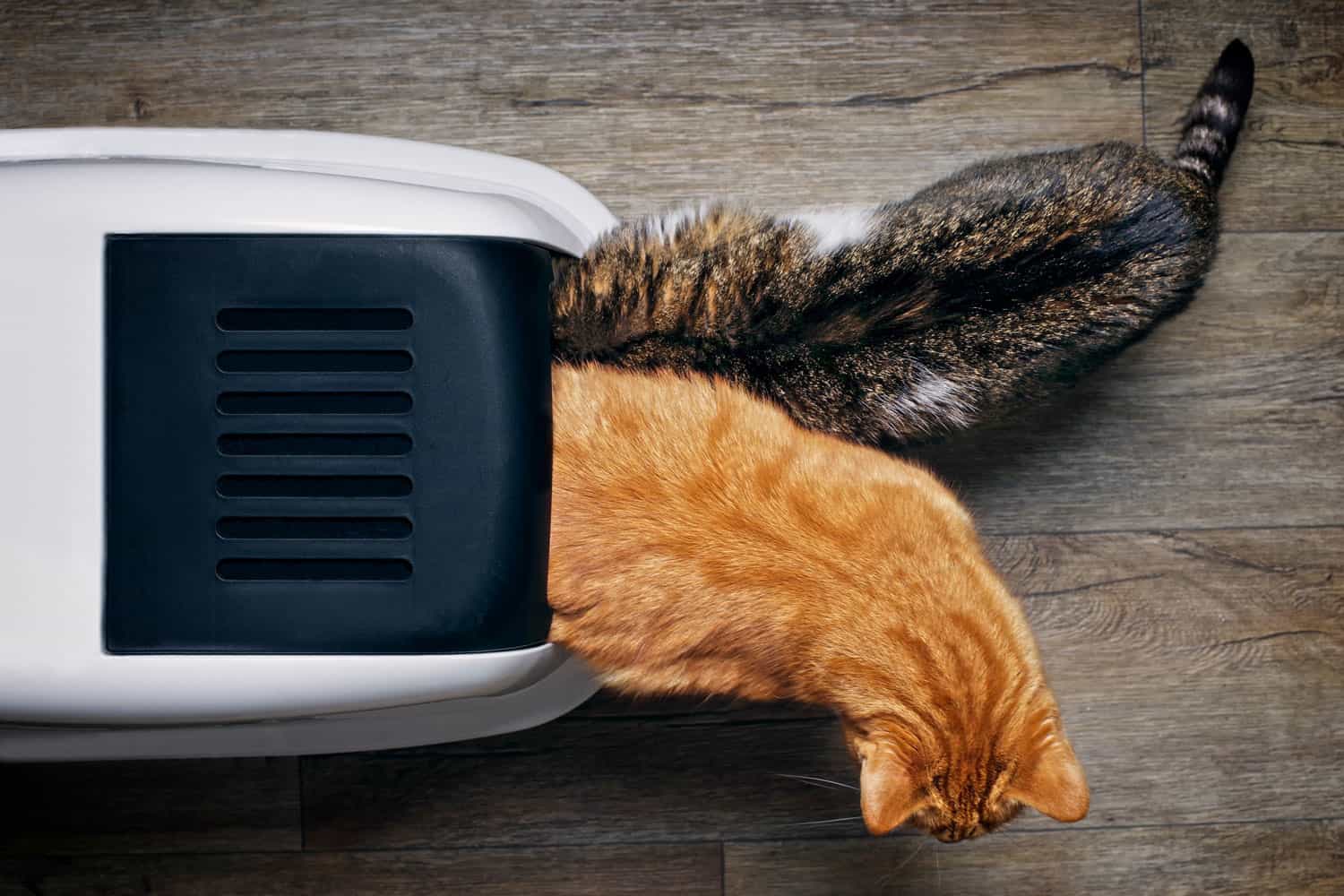
Cats are curious animals by nature, and watching other cats use the litter box is a way for them to satisfy their curiosity and learn more about their environment.
They are always interested in what their feline friends are up to.
Social Bonding: A Way To Build Trust And Establish Social Connections
Watching another cat use the litter box can also be a way for cats to bond with each other.
Cats can build trust and establish social connections by observing their feline friends in this vulnerable state.
It is a way for them to show that they trust each other and feel safe in each other's presence.
Hunting Instincts: A Natural Urge For Cats
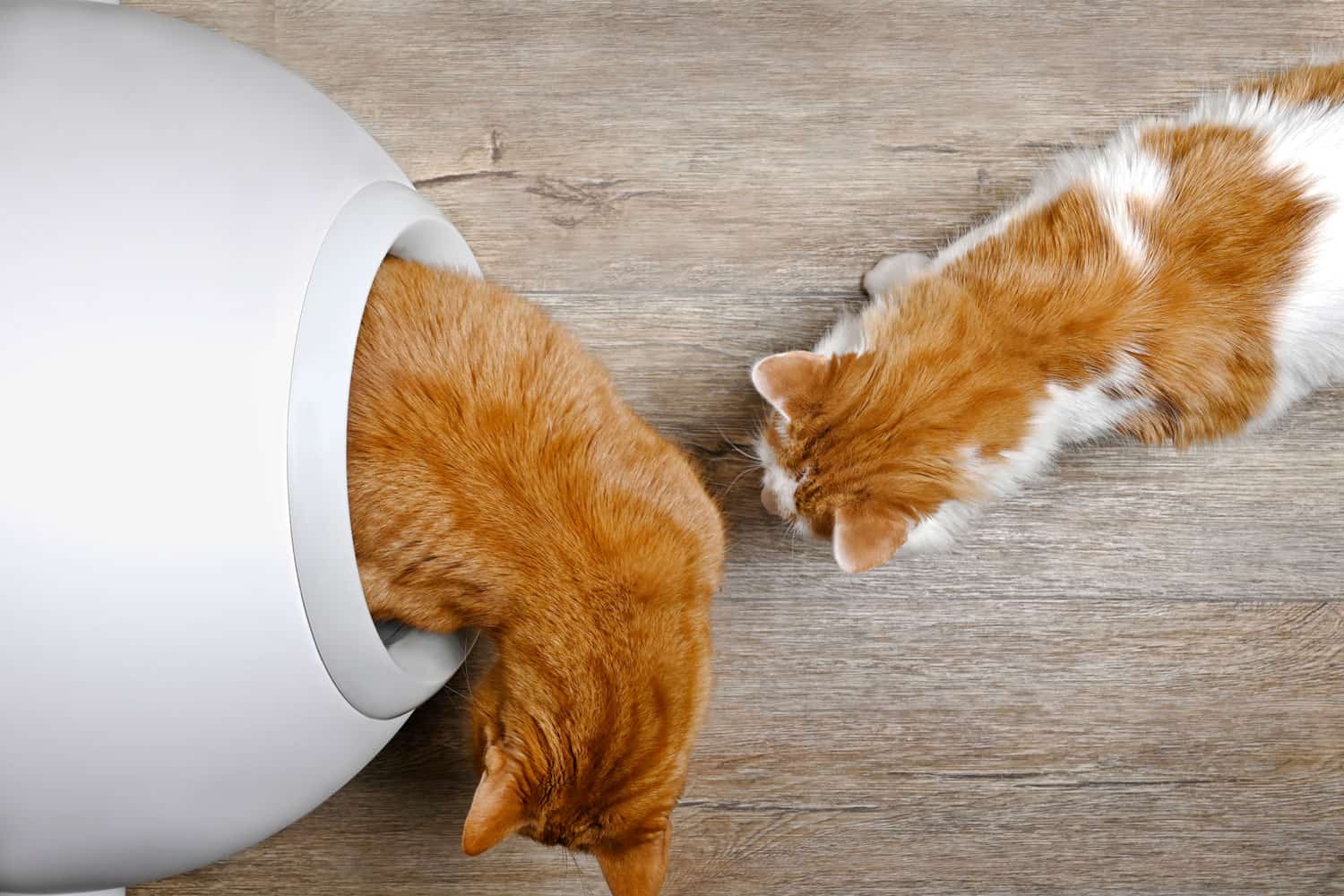
Cats are natural hunters; watching another cat use the litter box can trigger their hunting instincts.
They may see the other cat as prey and become fixated on their movements.
This behavior is more common in outdoor cats, but indoor cats may also exhibit this behavior.
Watching other cats use the litter box is a natural behavior for cats, serving as a way for them to satisfy their curiosity and establish social connections.
While it may seem strange to humans, it is an essential part of their feline fascination, and we should not discourage it.
The Smell of Intrigue: Heightened Senses
Cats watch each other use the litter box because of the smell.
Cats have a highly developed sense of smell, and the scent of another cat's waste can intrigue them.
They may be trying to figure out who left the scent, or they may just be curious about what's going on in the litter box.
The Kitty Reality Show: Litter Box Edition
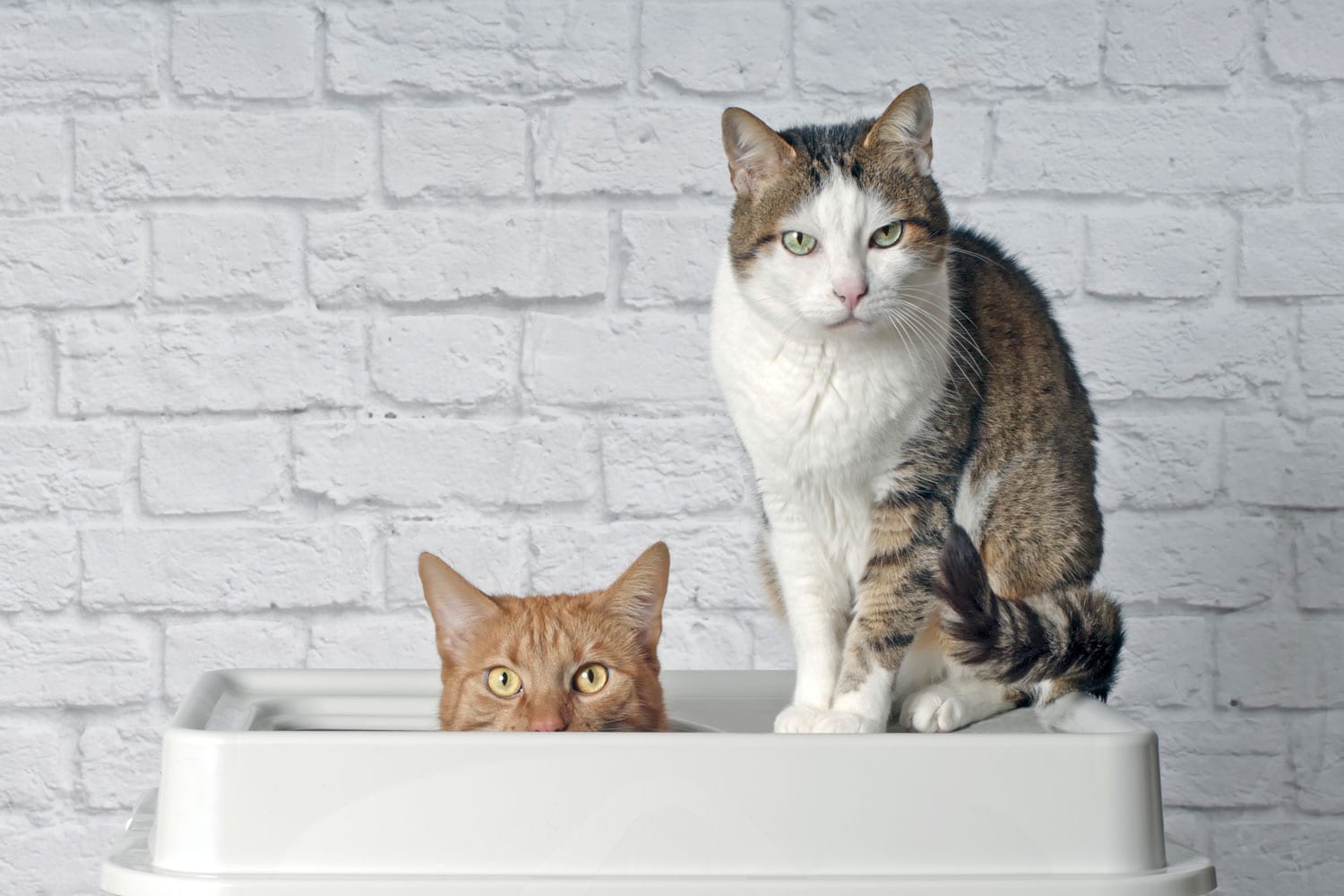
Their known quirky behaviors and watching their feline friends use the litter box is no exception. It's like a kitty reality show, with all the intrigue and drama you could ever want.
Here are some reasons why cats behave the way they do around the litter box:
Drama in the Sandbox
Another reason is it's a social behavior that allows cats to share an intimate space and form a closer relationship.
While watching another cat use the litter box, cats may learn from each other and develop new habits.
It's important to note that cats are unique creatures, and their behavior around the litter box is just one aspect of their fascinating personalities.
By observing their behavior, we can better understand their social dynamics and appreciate the unique bond that cats share with each other.
Cat Behavior
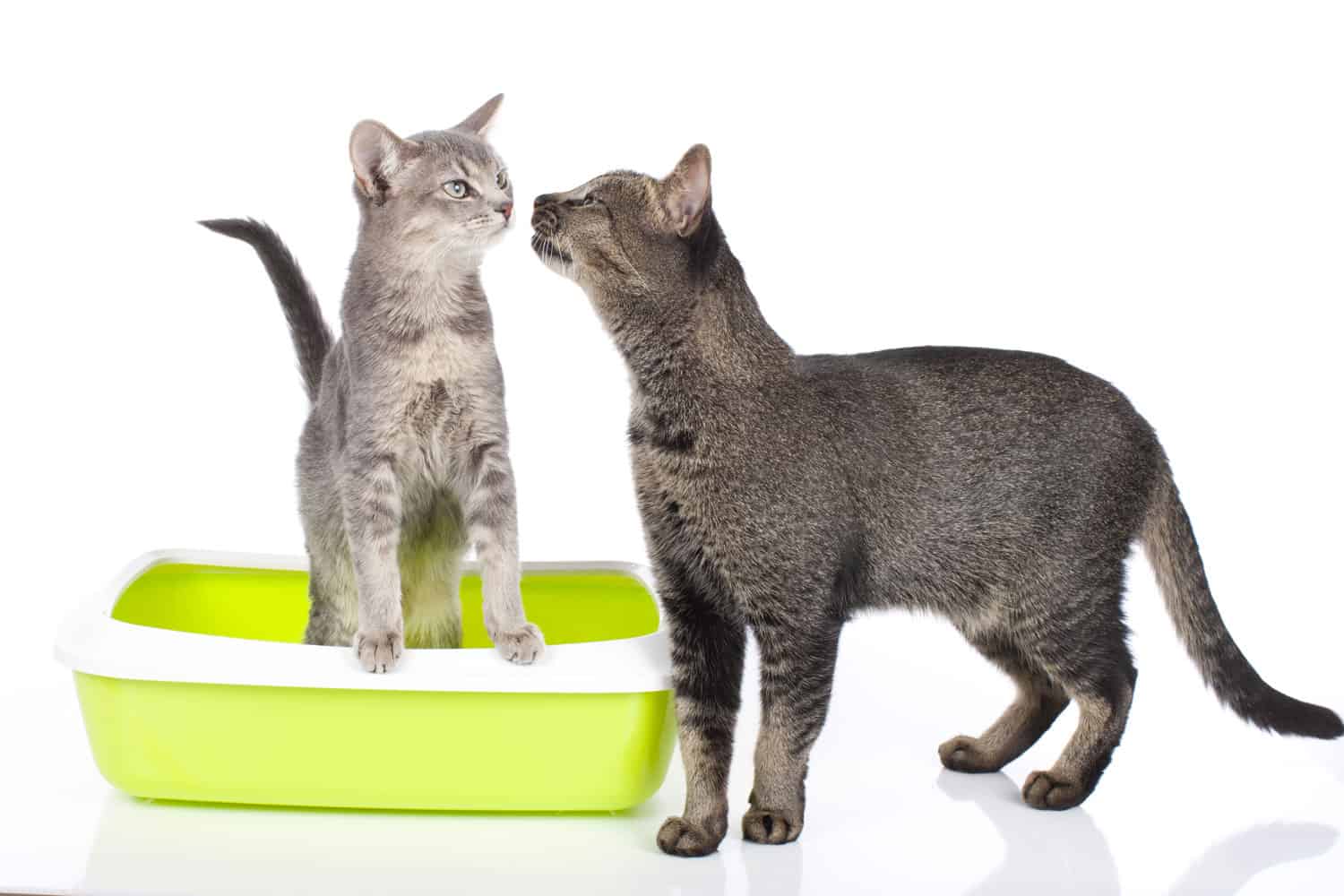
Understanding your cat's behavior is essential to providing them the care and attention they need. By observing their behavior, you can ensure that your cat is living their best life.
Here are a few things to keep in mind when trying to understand your cat's behavior:
- Cats enjoy having their own space and may become more comfortable and relaxed if they have a designated area to call their own.
- Cats are social animals and enjoy the company of other cats.
However, it's important to introduce them to new cats slowly and gradually to ensure a positive and stress-free experience for everyone involved. - Cats take pride in their cleanliness and appreciate a clean environment.
Keeping their litter box clean and fresh is essential to their well-being and happiness. - Cats are curious creatures and enjoy exploring their surroundings.
Providing them with plenty of toys and stimulation can help keep them entertained and happy. - Cats thrive on routine and appreciate a consistent schedule.
Introducing them to new environments or people gradually can help reduce stress and anxiety.
If you notice any unusual behavior in your cat, it may be a sign of an underlying health issue, and you should consult with your veterinarian.
Cats are complex creatures with unique personalities and behaviors.
You can keep your feline friends happy and healthy by providing them with a clean and stimulating environment and understanding their behavior.
Read more: Why Does My Cat Act Scared Of The Litter Box?
A Tale of Two Kitties: Social Hierarchy
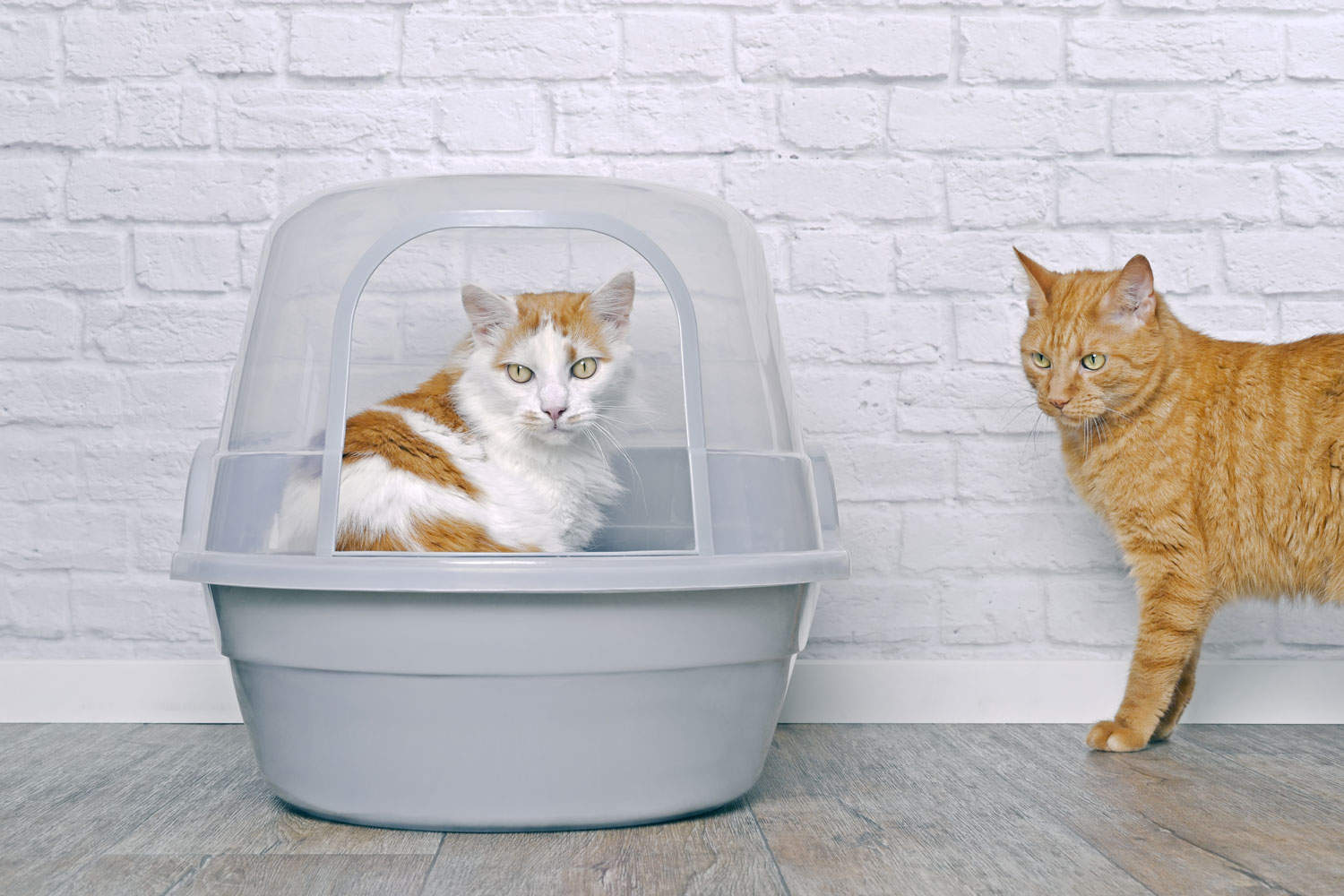
Regarding cats, social hierarchy plays a significant role in their behavior.
As research suggests, cats have a complex social structure, and their rank influences their behavior in the hierarchy.
This hierarchy is based on several factors, such as age, sex, and personality.
In a multi-cat household, cats establish a social hierarchy that determines who is the boss and who is not. The dominant cat is usually the group's oldest and most confident cat.
They are the ones who claim the best sleeping spots, the best toys, and the best food.
Lower-ranked cats must wait their turn or settle for less desirable options.
Regarding litter box behavior, the social hierarchy can also come into play.
As observed by cat owners, some cats like to watch others use the litter box.
This behavior may seem odd, but it's actually a way for cats to establish their rank in the hierarchy.
The dominant cat may watch the other cats use the litter box as a way to assert their dominance.
They may also use this opportunity to check the other cats' health and well-being.
On the other hand, the lower-ranked cats may watch the dominant cat use the litter box as a sign of respect and submission.
It's important to note that not all cats follow the social hierarchy strictly.
Some cats may challenge the dominant cat's authority and try to climb the ranks.
This can lead to conflicts and fights between cats.
As a cat owner, monitoring your cat's behavior and intervening if necessary to prevent any harm is essential.
Social hierarchy, including litter box habits, is crucial in cats' behavior.
By understanding your cats' rank in the hierarchy, you can better understand their behavior and prevent potential conflicts.
The Litter Box: A Cat's Personal Space
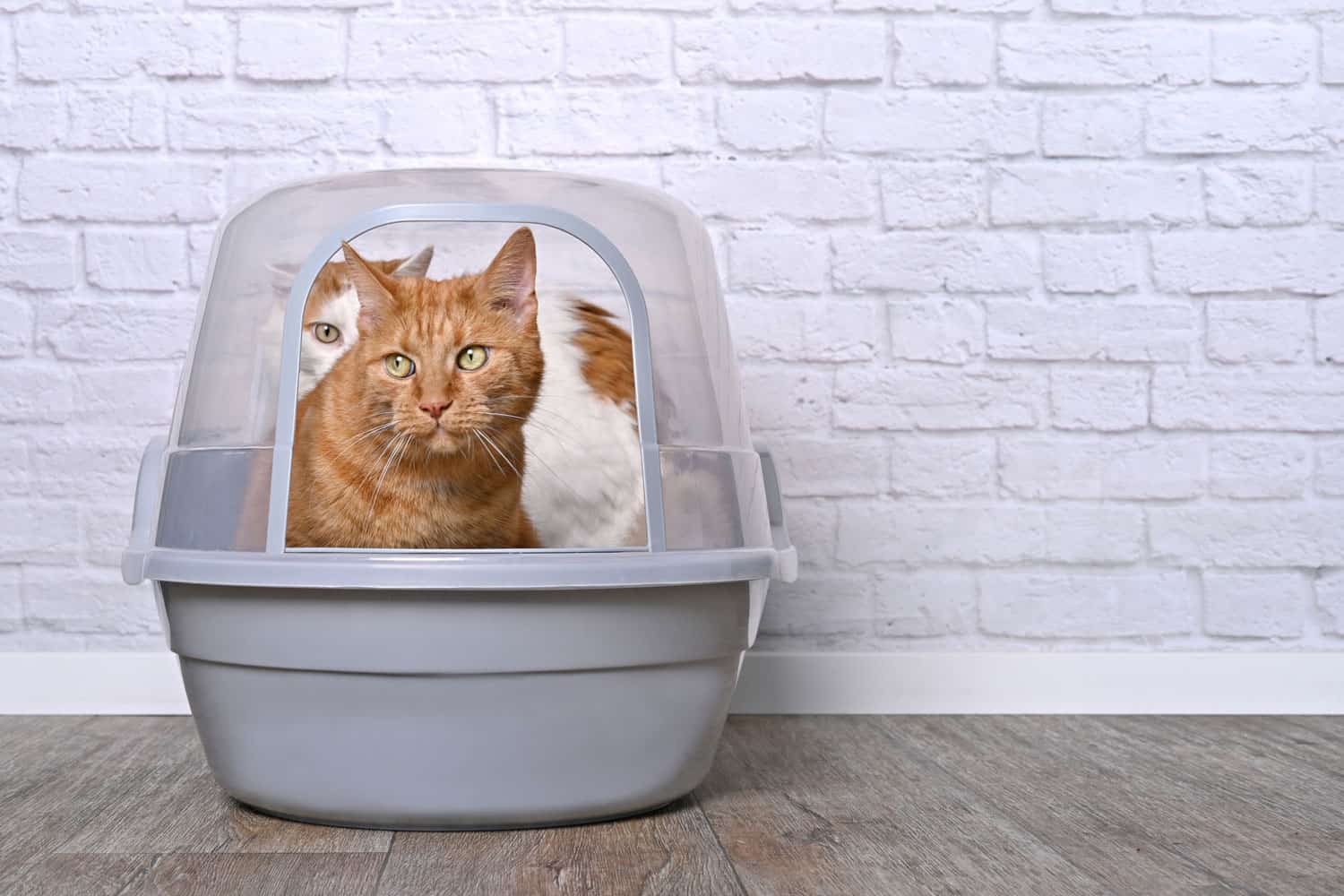
They take their litter box very seriously and consider it their personal space.
They prefer a clean and well-maintained litter box and may avoid using it altogether if it's not up to their standards.
As a responsible cat owner, cleaning the litter box regularly and providing a comfortable space for your feline friend is important.
While it's common for cats to watch each other and use the litter box out of curiosity, persistent watching could indicate a more serious issue.
In some cases, a dominant cat may prevent others from using the litter box to assert dominance.
Addressing this behavior and ensuring all cats have access to a clean and comfortable litter box is essential.
Understanding your cat's behavior around the litter box is crucial to their well-being.
You can ensure your feline friend is happy and healthy by providing a clean, comfortable space and monitoring their behavior.
More of this: Why Does My Cat Attack Me When I Clean The Litter Box?
When to Worry: Unusual Litter Box Behavior
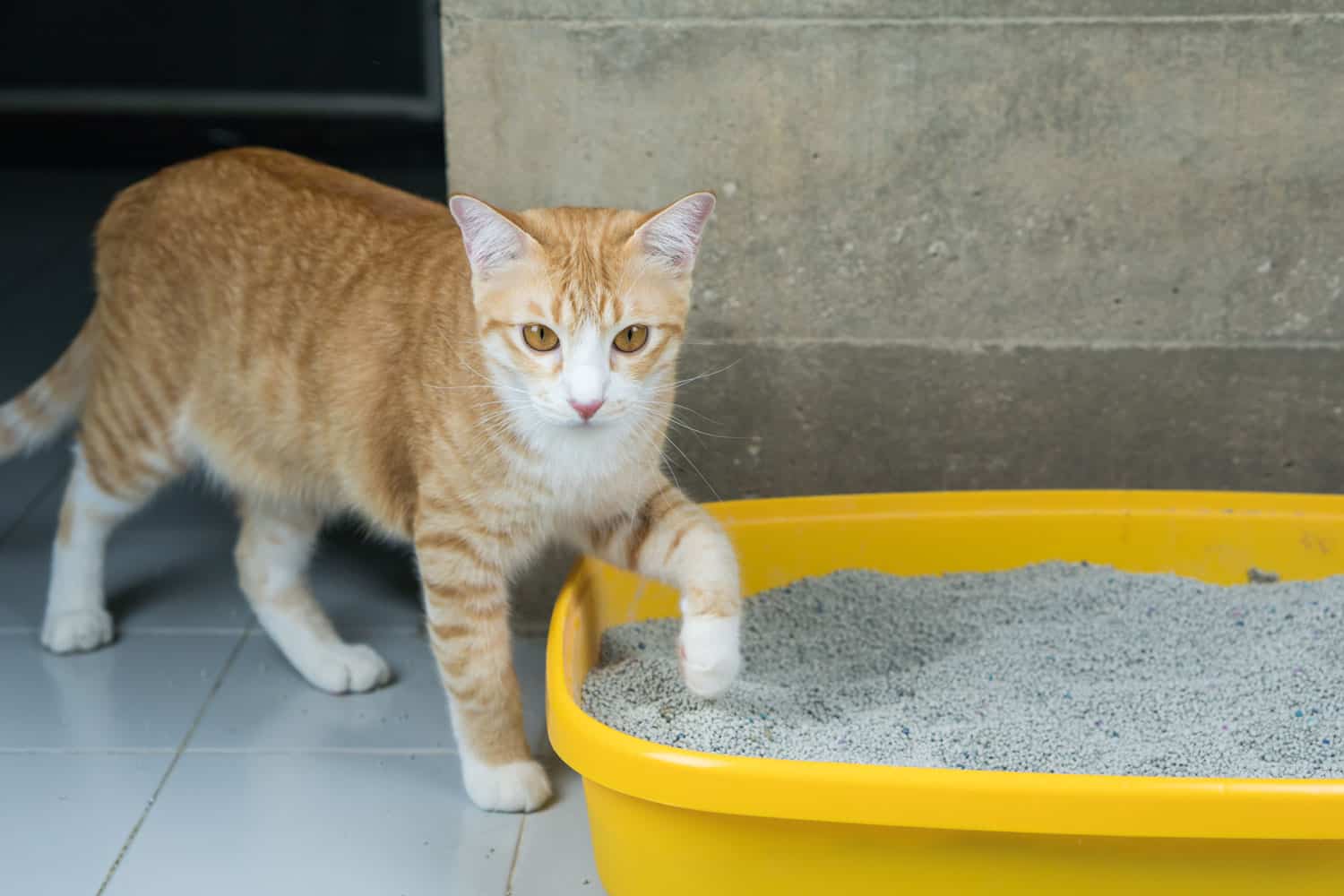
While watching other cats use the litter box is normal, here are some unusual litter box behaviors to look out for:
Avoiding the litter box
If your cat is avoiding the litter box, it may be a sign of a medical or behavioral issue.
Cats may avoid the litter box if it's in a location they dislike or if they associate it with pain or discomfort.
If your cat does this, it's important to take them to the vet to rule out any medical issues.
Urinating or defecating outside the litter box:
A cat urinating or defecating outside the litter box may indicate a medical issue or a behavioral problem.
Cats may urinate or defecate outside the litter box if they have a bladder problem that results in pain during urination, an anal gland problem, or another issue that causes discomfort during defecation.
Over or underusing the litter box
If they are over or underusing the litter box, it may indicate a medical or behavioral problem.
Cats may overuse the litter box if they have a urinary tract infection or if they are stressed. Cats may underuse the litter box if they have constipation or diarrhea.
Taking your cat to the vet is important if you notice any unusual litter box behavior.
After ruling out any medical issues, you can address behavioral problems with litter box training or behavior modification techniques.
Keep an eye on your cat's litter box behavior and take action if you notice any changes, as cats are creatures of habit.
Takeaways: Embrace Your Cat's Quirks
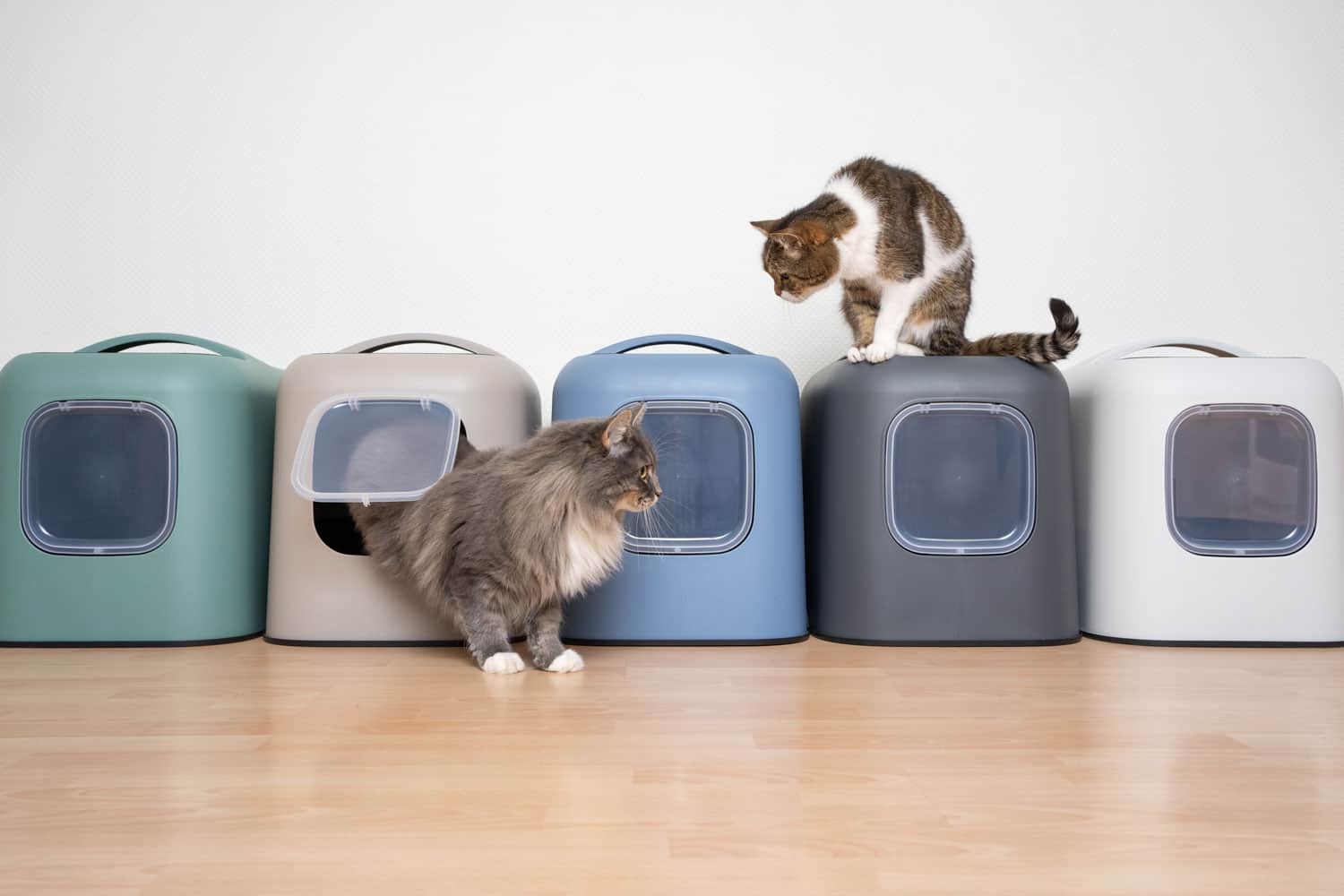
Cats are fascinating creatures with unique personalities and behaviors that make them captivating pets.
Watching another cat use the litter box may seem odd to us, but it's just another part of their daily routine.
As cat owners, we can embrace our feline friend's quirks and find ways to accommodate them.
To help you and your cat coexist peacefully, provide multiple litter boxes if you have multiple cats.
Cats are territorial creatures and may prefer their own litter box.
Keep the litter box clean and fresh to ensure your cat will use it.
If one cat is watching another, use the litter box, and give them space and privacy, as cats are independent creatures.
By being attentive to your cat's behavior and providing a comfortable and clean environment, you can ensure your feline friend is happy, healthy, and living their best life.
So, embrace your cat's quirks and learn to appreciate their unique personalities.
You can enjoy a fulfilling and rewarding relationship with your furry companion with a little patience and understanding.
Remember, every cat is unique and has their own quirks and preferences. Embrace your cat's individuality and enjoy the companionship they provide.
More of this: Cat Litter Area Ideas [10 Ways To Make Your Cats’ Space Their Own]



